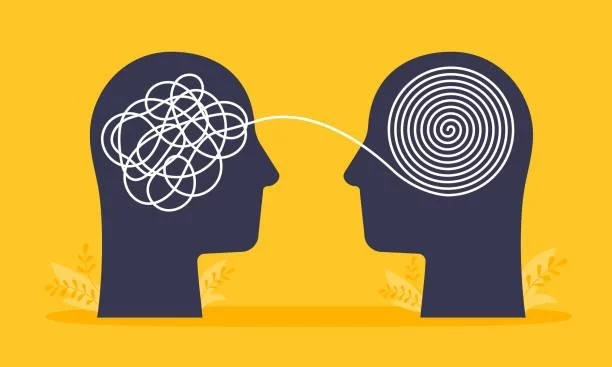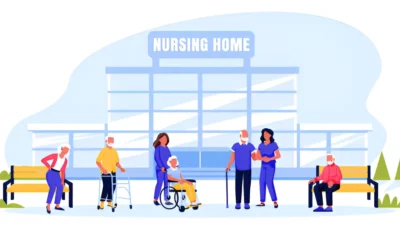Last Updated on May 27, 2025 by Lexy Summer
Co-occurring disorders, also known as dual diagnosis, occur when an individual has both a mental health condition and a substance use disorder simultaneously. These disorders are common and complex, making them harder to identify and treat. Early detection of co-occurring disorders is critical for seeking timely intervention and effective treatment. In this article, we will explore the early signs of co-occurring disorders, how they impact individuals, and the importance of getting help early on.
What Are Co-Occurring Disorders?
Co-occurring disorders are a dual challenge, where an individual experiences both a mental health disorder and a substance use disorder. For example, a person might have depression while also abusing alcohol or drugs to self-medicate. The relationship between mental health and substance abuse is reciprocal: substance abuse can worsen mental health conditions, and vice versa. This makes treatment more difficult, as each disorder must be treated simultaneously for recovery to be successful.
The prevalence of co-occurring disorders is high, affecting millions of individuals worldwide. According to recent studies, about 7.9 million adults in the U.S. experience co-occurring mental health and substance use disorders. However, many of these individuals remain undiagnosed because the symptoms of one disorder can mask or overlap with the other.
The Importance of Early Detection
Identifying co-occurring disorders early can prevent complications and improve the chances of recovery. Without early intervention, the mental health condition and substance use disorder can escalate, leading to more severe symptoms and a greater risk of chronic health problems. Early detection allows for targeted treatment that addresses both conditions at the same time, making recovery more manageable and effective.
Treatment of co-occurring disorders is typically more successful when both issues are treated together. This is why recognizing the early signs of these disorders is crucial for individuals and their families to seek help before the issues become more severe. Facilities like Carrara luxury rehab center offer comprehensive, high-end treatment programs tailored to address both mental health and substance use disorders in a supportive, serene environment.
Early Warning Signs of Co-Occurring Disorders
1. Mood Swings and Emotional Instability
One of the most noticeable signs of co-occurring disorders is frequent mood swings. Individuals may experience extreme highs and lows, which could be related to an underlying mental health condition such as bipolar disorder, combined with substance misuse. Emotional instability can also show up as irritability, depression, or anxiety, often triggered or intensified by substance use. These mood changes are a red flag and should be monitored closely.
2. Substance Use as a Coping Mechanism
Many individuals with co-occurring disorders use substances as a way to cope with the symptoms of their mental health issues. For example, someone with anxiety may drink alcohol to self-medicate, or an individual with depression might turn to drugs to numb their emotions. This use of substances to alleviate emotional distress is a major sign of a co-occurring disorder. If substance use becomes a regular response to emotional discomfort, it’s a strong indication that there may be underlying mental health issues contributing to the behavior.
3. Changes in Behavior and Social Withdrawal
People with co-occurring disorders often withdraw from social activities and isolate themselves from friends and family. This could be due to feelings of shame or guilt about their mental health struggles or substance use. Additionally, changes in behavior, such as neglecting responsibilities, ignoring personal hygiene, or engaging in risky behavior, can indicate the presence of co-occurring disorders. Social withdrawal and sudden changes in behavior are often the result of trying to manage both a mental health disorder and substance abuse.
4. Frequent Relapse and Treatment Resistance
If someone is undergoing treatment for either a mental health disorder or a substance use disorder but continues to relapse or shows resistance to treatment, this may be a sign of a co-occurring disorder. The presence of both conditions complicates treatment, and if both disorders are not addressed simultaneously, relapse is more likely. When individuals do not show improvement despite treatment efforts, it’s essential to reassess whether a dual diagnosis might be the cause.
5. Physical Symptoms and Health Problems
Co-occurring disorders don’t just affect mental health—they can also manifest physically. Individuals may experience sleep disturbances, changes in appetite, or chronic fatigue. Physical symptoms like these often accompany mental health issues and substance abuse, making it difficult to determine which condition is at the root of the problem. For example, someone with depression may experience sleep problems, while substance abuse may contribute to fatigue and poor physical health.
Co-Occurring Disorders: A Complex Challenge
Co-occurring disorders present a unique challenge for both individuals and healthcare providers. The relationship between mental health and substance use is complex—each condition can exacerbate the other, making it hard to treat one without addressing the other. This is why it’s critical to look for signs early on and seek specialized care.
The symptoms of co-occurring disorders are often confused with one another, making it difficult for individuals to understand what is happening. A person with depression might self-medicate with alcohol or drugs, which can worsen the depression. Similarly, someone struggling with anxiety may increase their substance use to cope with feelings of distress, only to find that the anxiety worsens. Understanding the interconnected nature of these conditions is key to effective treatment.
Seeking Help: What to Do Next?
If you suspect that you or a loved one is experiencing co-occurring disorders, seeking professional help is the first step. Treatment usually involves a combination of therapy, medication, and support groups. It’s essential to find a treatment center that specializes in dual diagnosis to ensure both conditions are treated together, rather than separately.
In Palm City, there are several treatment facilities equipped to help individuals with co-occurring disorders. These centers focus on a holistic approach, ensuring that both the mental health condition and the substance use disorder are addressed simultaneously. Therapy might include cognitive-behavioral therapy (CBT), dialectical behavior therapy (DBT), or group therapy, while medications may be prescribed to help stabilize mood or reduce cravings.
How Co-Occurring Disorders Impact Your Life
Living with co-occurring disorders can be incredibly challenging. It affects not just the individual but also their relationships, career, and overall quality of life. However, recovery is possible. By recognizing the signs early and seeking professional help, individuals can work toward a healthier, more balanced life. It is important to understand that recovery from co-occurring disorders is a journey, and it requires a multi-faceted approach involving medical, psychological, and social support.
The Road to Recovery: It Starts with Understanding
Understanding co-occurring disorders is the first step in recovery. If you’re in Palm City or another location, make sure to seek a treatment provider with experience in dual diagnosis care. Recovery is a process, but with the right support, individuals can find stability and reclaim their lives. The right treatment facility will help guide individuals through the complexities of managing both conditions, providing tools and strategies to build long-term recovery.
Conclusion: Recognizing the Early Signs of Co-Occurring Disorders
Co-occurring disorders are complex and often go undiagnosed, but early recognition of the signs can lead to timely intervention and better treatment outcomes. If you or someone you know exhibits any of the symptoms mentioned above, it’s crucial to seek professional help right away. Addressing both mental health and substance use issues together is essential to achieving lasting recovery.
Remember, if you’re in need of help or guidance on navigating co-occurring disorders in Palm City, support is available. With the right treatment, individuals can find a path to recovery that works for them. By focusing on early signs and seeking appropriate treatment, individuals with co-occurring disorders can take the first steps toward living a healthier, more fulfilling life.

Lexy Summer is a talented writer with a deep passion for the art of language and storytelling. With a background in editing and content creation, Lexy has honed her skills in crafting clear, engaging, and grammatically flawless writing.



